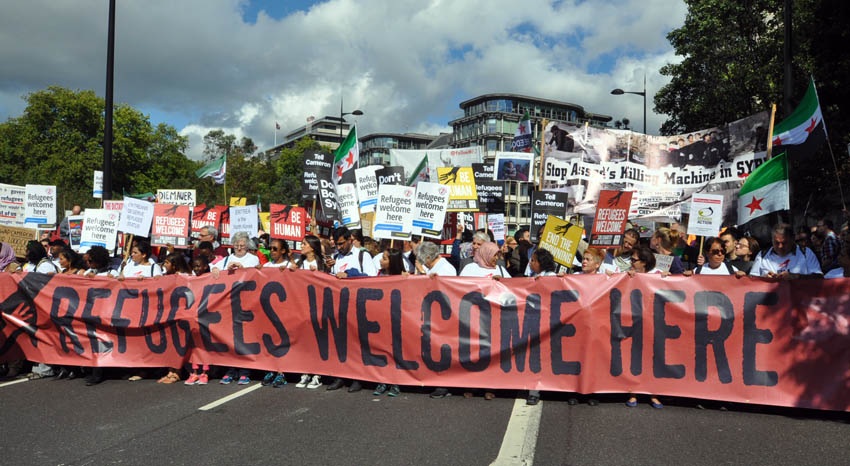WHEN young Jay (name changed), an Iranian teenager, set foot on UK shores, a myriad of emotions swirled within him: relief, uncertainty, hope, and overwhelming fear.
Soon after his arrival, he was received by the UK immigration authorities, only to be lodged in a hotel designated for children seeking asylum.
This establishment, devoid of basic amenities like clean clothing and communication tools, became his residence for weeks. Jay’s narrative isn’t singular.
From 2021 onwards, the UK government has relocated over 4,500 minor asylum-seekers, some as young as 10, to regular hotels nationwide. This move, which was initially a provisional solution to manage the rising influx of asylum-seekers, has garnered criticism from multiple sectors.
Charities, activists, and political critics have argued that this exposes these young refugees to potential dangers.
However, recent reports have revealed that despite pausing this practice temporarily, the Home Office resumed it, relocating over 100 minors to Kent’s hotels.
This decision appears to go against a high court judgement from July, which declared the standardised usage of hotels for this purpose illegal.
Many who have witnessed the conditions in these government-supervised hotels report substandard meals and deteriorating rooms. A more pressing concern is the alleged neglect these children face, making them susceptible to threats like abduction and exploitation.
Disturbingly, in the last two years, around 400 minors have reportedly disappeared from such accommodations, with 154 of them yet to be located.
This back-and-forth with hotel accommodations seemed to hit a wall when, in March, Immigration Minister Robert Jenrick suggested that hotels were the only feasible option.
However, the narrative took a turn in July. Charity Every Child Protected Against Trafficking (Ecpat) and the Brighton and Hove City Council triumphed in a lawsuit against the home secretary, establishing that the common use of hotels for asylum-seeking minors was against the law.
Lauren Starkey, a campaigner with Homes Not Hotels, expressed relief at the court’s decision, saying, ‘We’ve contended its unlawfulness all along, and now it’s been affirmed.’
Despite this, the future remains uncertain. A subsequent hearing is scheduled for 15 September. Yet, with indications that the Home Office might counteract the court’s decision, the outcome remains a mystery.
Earlier this year, a shocking revelation came to light – out of 600 minors in a Brighton hotel, an alarming 136 vanished. An informant from the Home Office disclosed how traffickers often abducted children right outside this accommodation.
Brighton activists, in retaliation, heightened their campaign against such hotels, resulting in the hotel’s closure and the safe transfer of its inhabitants. Yet, by June, confidential Home Office communications indicated plans to restart the hotel.
Reacting promptly, Hermione Berendt from Homes Not Hotels detailed their actions, which included public demonstrations and petitions to local authorities and MPs.
This issue isn’t isolated to Brighton. The charity Ecpat took legal actions against the government for its inertia in Kent.
The court case, which amalgamated claims from Ecpat, Brighton council, and a counter-claim from Kent County Council (KCC), culminated in Justice Chamberlain’s ruling.
He asserted that hotels should only serve as short-term solutions during genuine emergencies.
However, KCC defended its actions, citing its geographical location as a reason for the disproportionate number of asylum-seeking children it receives.
But who truly bears the responsibility? Daniel Sohege from human rights organisation Stand For All claims it rests primarily with the Home Office. Though the courts have ruled against using hotels as habitual accommodations for refugee children, Sohege believes the Home Office might continue to find loopholes to perpetuate the practice.
In related news, recent changes in the notice periods for refugees, after obtaining their status, are pushing them into potential homelessness, according to warnings from several charities.
The concern stems from the UK government’s decision to shorten the period a refugee has before needing to leave their asylum support accommodation.
Prominent organisations, including human rights and homelessness groups, are advocating for refugees to be granted a minimum of 28 days to make alternative living arrangements and seek employment.
In a letter addressed to Home Secretary Suella Braverman and Housing Secretary Michael Gove, the Refugee Council has revealed that some refugees are being given a mere week’s notice to vacate their lodgings.
This drastic reduction, the letter points out, not only imposes undue hardship on the refugees but also burdens local councils already grappling with housing challenges.
Many of these councils reportedly were not informed about the revised timelines and thus unprepared to address the surge in need.
A key point raised by the Refugee Council revolves around the ‘move-on’ period, which used to begin when refugees received their Biometric Residence Permit (BRP).
However, recent modifications mean the countdown starts upon receipt of the grant letter that confirms their protection status.
Given that there’s often a significant lag between getting this letter and the BRP, refugees are left with limited time to arrange their affairs, risking homelessness.
Charities have proposed a streamlined process: refugees should simultaneously receive the grant letter, BRP, notice of asylum support termination, and their accommodation eviction notice. Additionally, they’re advocating to stretch the move-on period to a more accommodating 56 days, aligning with related homelessness and welfare legislation.
While these changes are lobbied for, the Home Office maintains that refugees should plan their next steps promptly post their status approval.
However, with the current challenges, it remains to be seen if these adjustments can indeed provide a more humane transition for these individuals.
